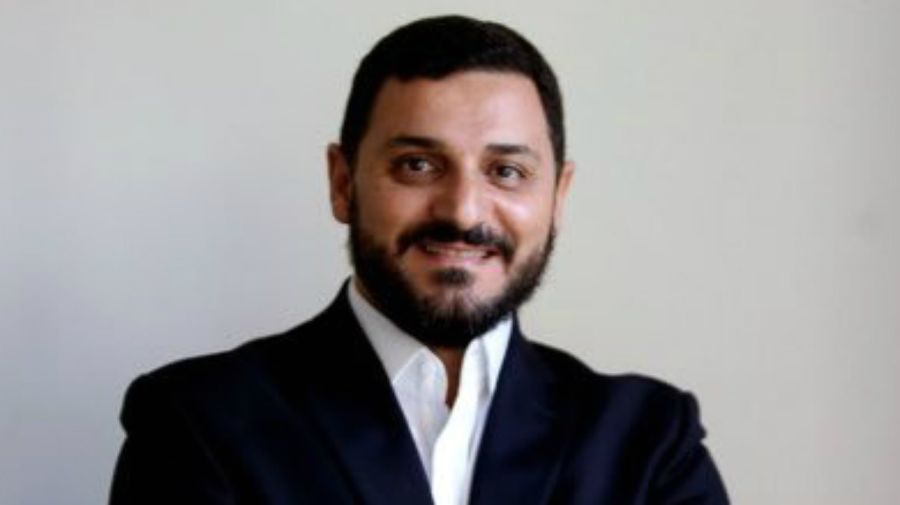
[ad_1]
Hussein Kalout is one of Brazil’s most prestigious political scientists. In his regular columns in the newspaper O Estado de S. Paulo, the professor of international relations and researcher at Harvard University sharply criticizes the foreign policy of President Jair Bolsonaro. “We are isolated in our own region, in South America, relations with Western Europe are extremely affected and the perception we have of Brazil today in the multilateral system is negative”, he said in an exclusive interview with PROFILE.
“All of this is the result of an ideological vision of the world, a vision very distant from what our doctrinal corollary of foreign policy has been advocating for two centuries, ”added the former special secretary for strategic affairs of the Brazilian presidency.
–What will Joe Biden’s foreign policy be towards Brazil?
—Biden has bigger concerns than South America and Brazil. His government must fight the pandemic, restructure the economy and ease the social tensions produced by the electoral process. Obviously, he also has an external task. American international alliances are deteriorating. Its starting point will be the reconstruction of the transatlantic relationship with the European powers. Second, he will seek a different approach to contain China. It is clear that there is a consensus between Democrats and Republicans on the need to contain the power of China. What will change is the format of this confinement. The Republicans made a direct confrontation through a trade war. They put countries before a binary choice: China or the United States. Democrats seek to contain China, but recognizing that the interdependent relationship between China and the United States is very strong. The aim of the Democratic strategy is to make China behave according to the rules. This will obviously give a geostrategic advantage to the United States and its allies. Third, there is the relationship with Russia. In the opinion of Democratic strategists, Trump had a complacent relationship with Vladimir Putin, creating a power vacuum that Russia ended up occupying. After Europe, China and Russia, there is the multilateral question. Biden will reposition the United States in the multilateral system, which will strengthen the country. Every time they acted in coordination in the multilateral system, they were strengthened. When they violated the principles of the multilateral system, they were weakened. From the return of the United States to the World Health Organization (WHO) and the Paris Agreement, the multilateral question will be a very important point of Biden’s foreign policy. Finally, the fifth theme will be the environment. The goal of the Biden government is to lead an economically driven environmental agenda, with the reassessment of the role of science. Latin America will not have a transcendent importance and therefore neither will Brazil. In my opinion, it will have a secondary dimension, with the exception of the climate issue or the containment of China. The importance of Brazil in the Biden government’s strategic foreign policy map will not be due to the strength of Brazil itself, but rather to what Brazil may represent in containing China.
–Will Brazil and Bolsonaro pay the least cost to bet on a Trump victory?
—Countries that have their own gravitational weight and regional importance are treated differently. The Bolsonaro government is isolating the country and damaging the Brazilian national interest, especially on the environmental front. I think the United States will want a dialogue with pragmatism. He knows what he wants from Brazil and how he wants it. The Biden government will not harass Brazil immediately. From now on, the ball is on the ground of Brazil, which must know how to position itself in relation to the Biden government. So far, the President of the Republic has not congratulated the new American leader, as several Latin American countries and even China have done. Obviously, the environmental issue can be a point of tension because within the Democratic Party there are people who measure this issue with a certain importance. If Brazil breaks with the international commitments it has made, there may be a negative impression on the Biden government. But I would be cautious in the analysis, because Biden’s campaign rhetoric that he used the environmental narrative and specifically mentioned Brazil doesn’t mean it will translate into the exercise of diplomatic policy. I think there will be caution.
–In the last article by O Estado de S. Paulo, he argued that he did not believe Brazil’s foreign policy was going to change too much. Why do you think Bolsonaro would continue with “Olavista” rhetoric?
“Any change in foreign policy would mean that Bolsonaro will recognize that the model formulated by Olavism and the ideas of the ideological core have proven to be wrong. What does Brazil think of emphasizing relations with China, since China has more important trade relations with Brazil than those of the United States and the European Union? Bolsonaro is attached to an ideological vision of international relations. There is a very strong ideological component in the formulation process and an absence of pragmatism. Bolsonaro thinks about foreign policy based on the monetization of votes and electoral support. Foreign policy must serve as an instrument of antagonism to generate electoral dividends at its base. It’s not that the base adapts to foreign policy. Foreign policy must be adapted to the reaction of the base of Bolsonaro. The tension with China and Argentina serves to galvanize this base. For this reason, I cannot envisage an evolution towards a pragmatic and rational foreign policy centered on the Brazilian national interest.
–Can Biden’s victory, the fight with China and bad relations with Europe bring Bolsonaro closer to Argentina?
At the moment, I do not see space for the formation of a new high-level understanding between the heads of state of Brazil and Argentina. The relationship between Brazil and Argentina runs through the two presidents. When the relationship between the two countries is dictated by bureaucracy, it is because the level of importance of this relationship has diminished, on one side or the other. I do not see that Brazil will approach Argentina as it should, in my opinion, to do so. Nothing prevents that next year there is a dialogue in the sphere of Mercosur, but I do not think that there will be an immediate change of behavior. It would be a de-characterization of the way Bolsonaro thinks about international politics. We must change the discourse, the approach to content and get out of bureaucratic inertia to enter into a high-level agreement between heads of state.
–Do you think Brazil will become even more isolated and become an outcast on the international stage?
– Brazil is much more important than the current government. The government we have is the result of a systemic failure of our politicians who, supported by popular sovereignty and votes, have reached the structures of power. Many people in China, the United States, the European Union, and South America itself know that Brazil’s dimensions are larger than those of its own government. Brazil has the resources of power to try to put things back in place. Obviously, that will depend on the duration of this operation in Brazil. In the United States, it was a four-year term. In Brazil, Trump’s electoral defeat may have an effect because it shows that the model that brought him to power, based on the criminalization of politics, on polarization, on binary elections, on mediocrity, in which the Politics is not the art of consensus building, but an arena for annihilation, it has proven defeated in the United States. It may last longer in Brazil or it may have a short life. We do not know yet. But Brazil has its own gravitational weight. He will always be respected.
–The international context is important for a country’s economy for investment and trade. In what international context does Bolsonaro need to be reelected in 2022?
– I believe that the international scenario is not predominant in the Brazilian electoral process, which has a dynamic very oriented by internal needs and demands. I cannot fail to point out that obviously a government with stable public policies, with stable environmental policy, has a greater capacity to attract investment. The attractiveness of investments has an impact on the creation of jobs, income and credit. Thus, isolation tends to prevent this capital from going to Brazil. Bad public policies, for example the absence of fiscal, fiscal and economic structural reforms, obviously tend to hamper further investment. It has to do with the dimension of economic stability. Brazil must reorganize the state machine. You cannot spend more than what you collect. It is necessary to understand the social demands, which are very high. And the fiscal space is small.
–With the extension of welfare programs, Bolsonaro’s popularity grew, mainly in the northeast, Lula stronghold and the PT. Are you becoming a populist politician backed by the lower classes?
– I have no doubt that Bolsonaro exercises a populist political style. This is independent of the creation of policies to help the population in need. When this emergency aid was created, it was not an initiative of the government, but of the Brazilian National Congress. Obviously, this has reverberated among the poorest, among those who are receiving aid and are in the northeast. Then he enjoyed a positive effect. But this is not sustainable because the Brazilian government does not have the resources to maintain this aid permanently. Today there is no room to break through the budget ceiling. Then you will need to create a tax or cut expenses. It will be a huge challenge to maintain this level of popularity. I think it was a circumstantial peak. You have to know calmly if it consolidates over time. As for the Brazilian northeast, Bolsonaro will need more than help to maintain his strength. In the municipal elections, he was considered one of the defeated. The candidates he supported did not translate this support into votes and a victory at the polls.

–What is the obstacle to a great national unity agreement between the left, the center and the right against Bolsonaro in 2022?
– I do not see, for the moment, an understanding of a broad front of all against Bolsonaro. There may be a specific agglutination of certain central parties, there may be alliances of certain left parties. All the candidates, whether right, center-right, center and left, should go with rhetorical capital that, after what happened in the United States, you have to defeat Bolsonaro because his government has failed. But if the economy recovers, there may be an impact on Bolsonaro’s popularity. If the government were well supported, I do not know if this kind of speech would make much sense. The question is: who will face Bolsonaro in the second round? Depending on who it is, will the others hold a union speech to defeat a president who can be considered inept? This is the key question. And, at the moment, there are no answers for her.
.
[ad_2]
Source link
 Naaju Breaking News, Live Updates, Latest Headlines, Viral News, Top Stories, Trending Topics, Videos
Naaju Breaking News, Live Updates, Latest Headlines, Viral News, Top Stories, Trending Topics, Videos